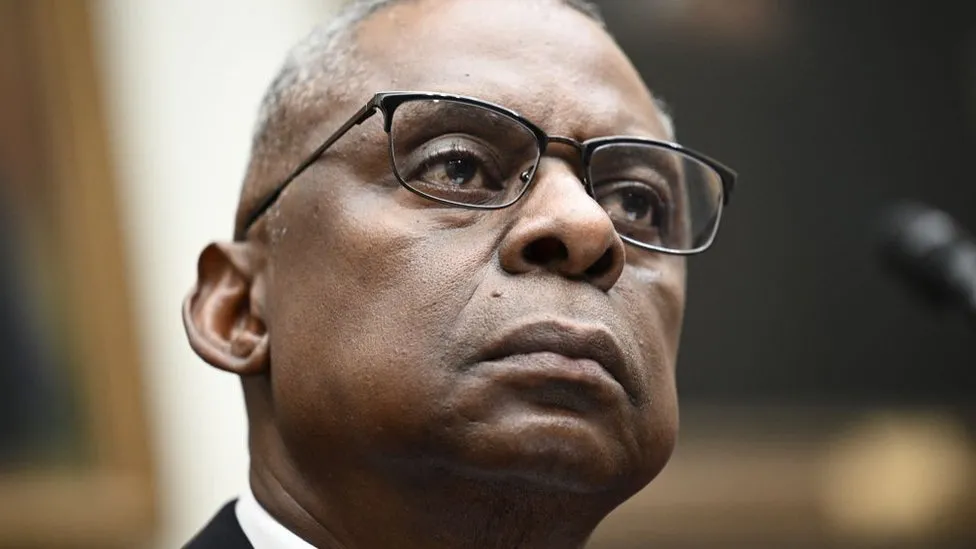Pentagon chief Lloyd Austin grilled over secret hospital stay
US Defence Secretary Lloyd Austin has been pressed by lawmakers for not informing the White House of recent hospital stays, with one calling the failure an "embarrassment".

The Pentagon chief acknowledged there was "a breakdown in notifications" about his January hospital stay during a contentious Thursday hearing.
Mr Austin, 70, has been undergoing prostate cancer treatment.
The Pentagon has found no "indication of ill intent" by Mr Austin.
"I never told anyone not to inform the president, White House or anyone else about my hospitalization," Mr Austin said in testimony before the House Armed Services Committee, the first chance lawmakers have had to question him since the incident came to light earlier this year.
Representative Mike Rogers said it was "totally unacceptable" it took three days for the president to be informed Mr Austin was in hospital.
"Wars were raging in Ukraine and Israel, our ships were under fire in the Red Sea, and our bases were bracing for attack in Syria and Iraq. But the commander in chief did not know that his secretary of defense was out of action," he said early on in the hearing.
"Who will be held accountable for this embarrassment?" Republican Congressman Jim Banks asked Mr Austin, later pressing him about the length of time he and President Joe Biden went without speaking while he was at Walter Reed National Military Medical Center.
"Either the president is that aloof or you are irrelevant," said Mr Banks.
"The president is not aloof," Mr Austin responded, adding that he is involved with all critical decision making.
Republican Nancy Mace asked: "When a soldier goes AWOL...what happens? What is the punishment?"
"I wouldn't equate my going to the hospital as going AWOL," Mr Austin replied. "I did not disappear. I was in a military medical facility in Washington DC."
Mr Austin told the committee in his opening statement that there has been a review of the chain of command process, saying the "system must be postured better" so this does not happen again.
They defence department has already implemented two out of the eight recommendations, he said.
The defence secretary is just below the president in the chain of command for the US military and is regarded as one of the most important members of the cabinet.
Mr Austin also spoke more about his cancer diagnosis saying it was "personal and deeply troubling" when he found out.
"I described it as a gut punch," he told the committee.
He said he did not want to "burden" the president with one of his personal issues but said "I should have talked to him about it".
On Monday, a Pentagon report cleared Mr Austin of wrongdoing and found no "indication of ill intent or an attempt to obfuscate" by either him or his staff.
Mr Austin began a "transfer of authority" to his deputy on 2 January - one day after he entered hospital and as he was being taken into critical care.
It was not until 4 January that the White House and Mr Austin's deputy - who was on leave in Puerto Rico - were made aware of his admission to hospital.
Mr Austin is expected to return to provide more testimony next month.
-bbc







